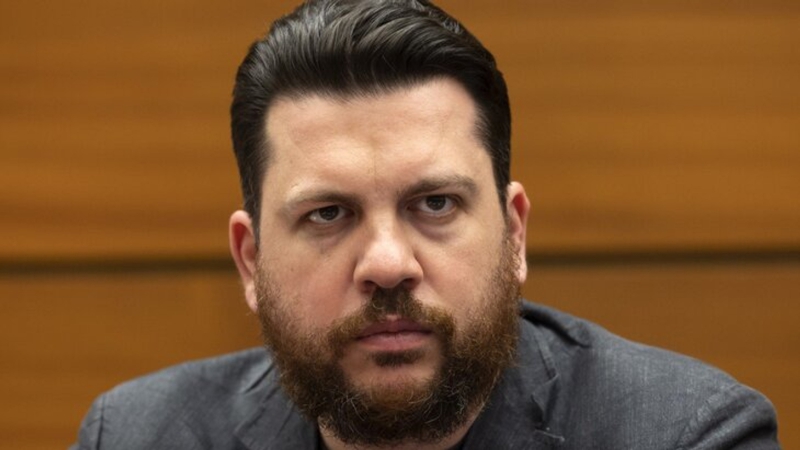Leonid Volkov, a top aide to the late opposition leader Alexei Navalny, served as the head of the Anti-Corruption Foundation until 2023. Photo: Salvatore Di Nolfi / EPA
Russia’s Supreme Court has granted a request by the Prosecutor General’s Office to designate the U.S.-registered legal entity of the Anti-Corruption Foundation (Anti-Corruption Foundation, Inc.) as a terrorist organization. The ruling was issued by Judge Oleg Nefyodov, who previously declared the so-called “international LGBT movement” and the “international Satanist movement” to be extremist.
Representatives of the Anti-Corruption Foundation (ACF) said the designation could complicate the group’s work abroad, including its cooperation with foreign partners and donors, as well as its dealings with sanctions lists and banks.
ACF staff member Leonid Volkov pointed to past cases in which Russian journalists and opposition activists had their accounts blocked by the London-headquartered digital bank Revolut after being added to Russia’s “list of terrorists and extremists,” which is maintained by Russia’s Federal Financial Monitoring Service (Rosfinmonitoring).
Yegeny Smirnov, a lawyer with the human rights project Perviy Otdel (lit. “Department One”) told The Insider that the challenges facing the U.S.-based ACF entity would likely mirror those already being experienced by Russian entities and individuals labeled as “extremists” or “terrorists”:
“Being added to the terrorist list allows not only the freezing of all property in Russia — which, in this case, likely doesn’t exist — but also increases the risk of being included in international lists of such organizations. This makes it harder to maintain bank accounts in many countries and creates potential problems when dealing with partners,” Smirnov said.
The Anti-Corruption Foundation (ACF, also known by its Russian acronym FBK), is an NGO founded by the late Russian opposition leader Alexei Navalny. It investigates corruption by high-ranking Russian government officials and releases its reports in videos that attract millions of views. In 2017, its YouTube video “He Is Not Dimon To You” (or “Don't Call Him 'Dimon'”), accused then-Prime Minister (and former President) Dmitry Medvedev misusing an estimated $1.2 billion in state resources. Navalny accused Medvedev of using the funds to collect luxury properties, with one reportedly having a standalone duck house. After that, rubber ducks became protest symbols among Navalny’s supporters — and among opponents of Vladimir Putin's government in general.
Another notable expose, “Putin’s Palace,” released in 2021, focused on the massive Black Sea residence which was built for Vladimir Putin via complex corruption schemes. The property was estimated to have cost in excess of 100 billion rubles (over $1 billion). As of Nov. 27, 2025, the video has amassed 134 million views on YouTube.
The Russian ACF and Navalny’s regional headquarters were declared extremist organizations in 2021. Two years earlier, in 2019, the foundation had been designated as a “foreign agent.” In Russia, the Anti-Corruption Foundation was formally liquidated as a legal entity in September 2021.

